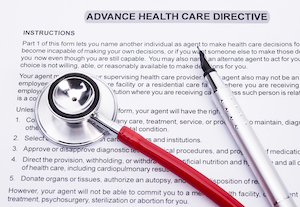Kendal at Home recently held a Healthy Aging Day on advance directives in honor of Advance Directives Month. You might be wondering if you need one, how it works and the differences between options. To help make things clearer, elder law attorney Carmen Verhosek from Wickens Herzer Panza has advice on common advance directive questions.
What is the difference between advance directives and powers of attorney?
“Advanced directives, commonly called healthcare powers of attorney, allow the person you name to make medical decisions on your behalf if you can't make them for yourself. Conversely, the power of attorney allows the person you name to make financial decisions. So one is for medical and one is for finances,” she explained.
What happens to advance directives once person passes away?
“One of the biggest myths is advance directives outlive the person, and that's not true. A lot of times people think because you have the advance directives, you're able to access medical records even after the person passes away. So for a wrongful death claim or a malpractice claim, they feel that because they were the healthcare agent under the advance directive that they would be able to access those records after the person passes away, and that's incorrect,” she said.
What is a living will?
“The living will is the document that allows you to make desires about your end-of-life medical decisions in the event that you’re in a terminal condition, without reasonable hope of recovery.
A lot of times when people think about a living will they think about the famous cases where people are on ventilators for long time and then you're in court because some child wants to “pull the plug.” The other child wants to wait. When there's no reasonable hope of recovery, the living will kicks in.
If you have executed a living will, those are your specific instructions to your physicians that you do not want to be kept alive by any artificial means. So usually that means comfort care, no additional or aggressive treatment. When you have a living will that’s signed, that document takes the power away from your advance directive’s power of attorney. That decision is coming straight from you to the physician.”
Is there any circumstance where a living will can be overwritten by medical personnel?
“I have not seen that to be the case in my experience.”
Can you have one power of attorney for financial matters and a different person for the healthcare power of attorney (advance directive)?
“Yes. You want to pick the person that's best for the job. A lot of times people want to name either the eldest child or the son to manage everything because that's traditionally how it's done, but consider the credentials of the person you are selecting. Do you have a family member with a medical background who might be better suited to make medical decisions for you? Or maybe another person with financial knowledge for your financial power of attorney? You also want to make sure you can trust the person to carry out your wishes.”
Who should possess these documents once they've been written?
“Your healthcare providers should have your advanced directives, and whomever you're naming under the documents should have a copy. [Law firms] keep a copy in the event that your original is lost, and the people you name as agents should have a copy.”










